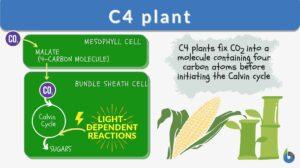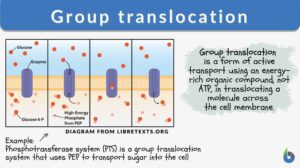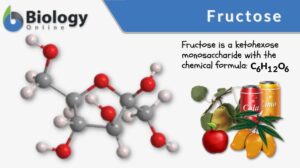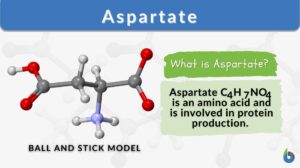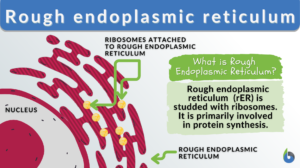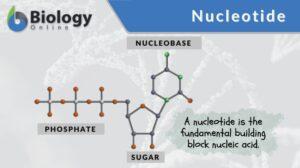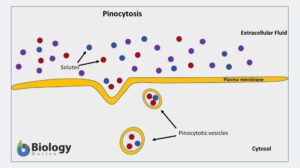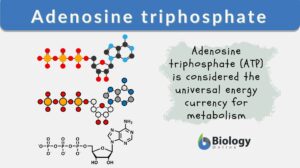Search Results for: pathway
Hsk pathway
Definition noun An abbreviation for hatch slack kortshak pathway: a metabolic pathway first determined by Burr and Kortshak... Read More
Pentose phosphate pathway
Definition noun (biochemistry) A glucose metabolic pathway in which five-carbon sugars (pentoses) and NADPH are synthesized... Read More
Hatch-Slack pathway
Definition noun A metabolic pathway first delineated in depth by M. D. Hatch and C. R. Slack (in 1966). In this pathway, the... Read More
C4 carbon fixation pathway
Definition noun A metabolic pathway where CO2 is first added to phosphoenolpyruvate by the enzyme, PEP carboxylase,... Read More
Glycolysis
What is Glycolysis and Why is it Important? Glycolysis is a metabolic pathway by which the 6-carbon molecule of glucose is... Read More
Embden-Meyerhof-Parnas pathway
Definition noun A glycolytic pathway whereby glucose is metabolized and converted ultimately to pyruvate, and results in a... Read More
C3 carbon fixation pathway
Definition noun A metabolic pathway where CO2 is converted to 3-phosphogylycerate, the first stable intermediate organic... Read More
De novo pathway
Definition noun, plural: de novo pathways (biochemistry) A biochemical pathway where a complex biomolecule is synthesized... Read More
Extrinsic pathway
Definition noun (1) (hematology) One of the two initial pathways for the conversion of the prothrombin to thrombin in the... Read More
Cellular respiration
Cellular Respiration Definition What is cellular respiration in simple terms? Cellular respiration can be defined simply as... Read More
Catabolic pathway
Definition noun A sequence of degradative chemical reactions that break down complex molecules into smaller units, usually... Read More
Anabolic pathway
Definition noun The series of chemical reactions that constructs or synthesizes molecules from smaller units, usually... Read More
Carbohydrate
Carbohydrate Definition A biomolecule refers to any molecule that is produced by living organisms. As such, most of them... Read More
Carbon fixation
Carbon Fixation Definition We know that the earth contains many elements. The periodic table shows us just how many... Read More
Humoral immunity
Let’s get to know where one should place humoral immunity, the topic of today’s discussion!! By the end of the article,... Read More
Group translocation
Group Translocation Definition Just like your “home” is a private place where you and your comfort are maintained due... Read More
Metabolic pathway
Definition noun A series of chemical reactions catalyzed by enzymes and are connected by their intermediates, i.e. the... Read More
Endomembrane system
Ever wondered how biomolecules are made within the cell and then they are released outside the cell for use by the body?... Read More
Plant Metabolism
Introduction Plants are responsible for incredible feats of molecular transformation. The processes are always being... Read More
Complement
Complement (Science: immunology) a term originally used to refer to the heat labile factor in serum that causes immune... Read More
Homeostatic Mechanisms and Cellular Communication
Homeostasis is the relatively stable conditions of the internal environment that result from compensatory regulatory... Read More
Rough endoplasmic reticulum
Rough Endoplasmic Reticulum Definition The rough endoplasmic reticulum (rough ER or rER) is a membrane-bound organelle... Read More
Catabolism
Catabolism Definition Catabolism is the branch of the metabolic process that breaks down complex, big molecules into... Read More
Nucleotide
Nucleotide Definition A nucleotide is regarded as the basic building block of nucleic acid (e.g. DNA and RNA). A nucleic... Read More
Protein Activity and Cellular Metabolism
Protein Binding Sites The ability of various molecules and ions to bind to specific sites on the protein surface forms the... Read More
Monosaccharide
Monosaccharide Definition In biology and biochemistry, a monosaccharide is a simple sugar that constitutes the building... Read More
Pinocytosis
Pinocytosis Definition What is pinocytosis? Pinocytosis is the ingestion of extracellular fluids, i.e. the fluid... Read More
Christmas factor
Definition noun A blood clotting factor in the intrinsic pathway of the blood coagulation cascade and works with clotting... Read More
Adenosine triphosphate
Adenosine Triphosphate Definition noun plural: adenosine triphosphates (biochemistry) An organic compound that is... Read More


